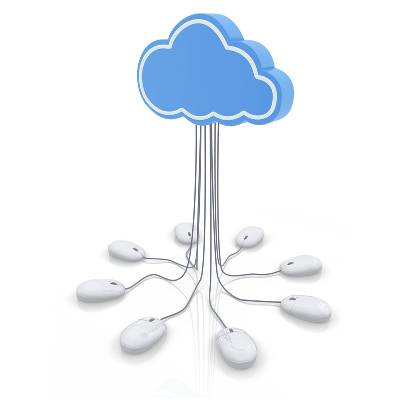 The modern business world is constantly evolving, and one of the revolutions that have allowed for this is virtualization. You might have heard about server virtualization or even desktop virtualization. Did you know that you can virtualize your applications, too? In fact, it can be one of the most valuable uses for virtualization, especially considering the upcoming Windows Server 2003 end-of-support date.
The modern business world is constantly evolving, and one of the revolutions that have allowed for this is virtualization. You might have heard about server virtualization or even desktop virtualization. Did you know that you can virtualize your applications, too? In fact, it can be one of the most valuable uses for virtualization, especially considering the upcoming Windows Server 2003 end-of-support date.
Macro Systems Blog
 Cloud computing is a revolution which is bringing about a change in the way small businesses view the consumption and analysis of data. More businesses than ever before have joined the cloud trend. However, some are finding that their cloud solution isn’t ideal, or they have presumptions about the cloud that simply aren’t true.
Cloud computing is a revolution which is bringing about a change in the way small businesses view the consumption and analysis of data. More businesses than ever before have joined the cloud trend. However, some are finding that their cloud solution isn’t ideal, or they have presumptions about the cloud that simply aren’t true.
 Some businesses are finding hardware virtualization to be an effective alternative to hosting their own servers in-house, and for good reason. They save money that would ordinarily be spent on electricity and operating costs associated with owning machinery. Similar to these virtual servers and workstations are what are known as “thin clients.”
Some businesses are finding hardware virtualization to be an effective alternative to hosting their own servers in-house, and for good reason. They save money that would ordinarily be spent on electricity and operating costs associated with owning machinery. Similar to these virtual servers and workstations are what are known as “thin clients.”
 Accessibility and mobility are important parts of a business’s data infrastructure. To this end, some businesses take advantage of a Virtual Private Network (VPN), which has the power to extend a personal network over a private network like the Internet. However, with new services like cloud computing gaining traction, is it time for businesses to switch up their VPN policies to stay relevant in their industry?
Accessibility and mobility are important parts of a business’s data infrastructure. To this end, some businesses take advantage of a Virtual Private Network (VPN), which has the power to extend a personal network over a private network like the Internet. However, with new services like cloud computing gaining traction, is it time for businesses to switch up their VPN policies to stay relevant in their industry?
 For those with weak stomachs, it’s not recommended to go back and read an email that was just sent. In doing so, a spelling or grammar error is likely to be found, which will cause one’s stomach to turn and fill with regret. If only there was a do-over button. Thanks to the new app called Pluto Mail, there is one.
For those with weak stomachs, it’s not recommended to go back and read an email that was just sent. In doing so, a spelling or grammar error is likely to be found, which will cause one’s stomach to turn and fill with regret. If only there was a do-over button. Thanks to the new app called Pluto Mail, there is one.
 As we near the end of 2014, the topic of IT budgeting is on everyone’s minds. How much are you willing to spend, and on what? In order to provide optimal figures for the new year, you need to take some time to plan out what you think you need to spend, versus how much you’re willing to spend, on IT. Thankfully, you don’t have to do this alone.
As we near the end of 2014, the topic of IT budgeting is on everyone’s minds. How much are you willing to spend, and on what? In order to provide optimal figures for the new year, you need to take some time to plan out what you think you need to spend, versus how much you’re willing to spend, on IT. Thankfully, you don’t have to do this alone.
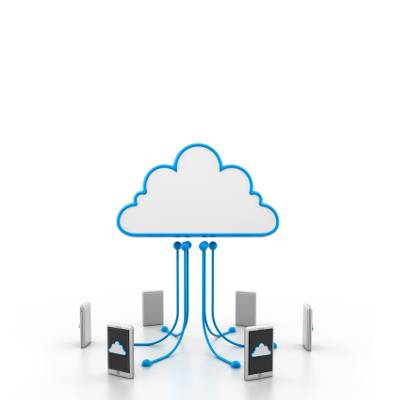 The cloud is changing the future of the technology industry in ways previously unseen. The cloud has the ability to store and process data from anywhere with a mobile device, which greatly changes the way that businesses operate. Everyone has their own predictions about what will happen as the cloud becomes more popular, but Greg Walters of Walters & Shutwell Inc. has some particularly interesting ideas to chew on.
The cloud is changing the future of the technology industry in ways previously unseen. The cloud has the ability to store and process data from anywhere with a mobile device, which greatly changes the way that businesses operate. Everyone has their own predictions about what will happen as the cloud becomes more popular, but Greg Walters of Walters & Shutwell Inc. has some particularly interesting ideas to chew on.
 A lot of employers are nervous about letting their employees work from home, but due to the increased evidence that it can be beneficial to productivity and cost-efficiency, it's getting more and more difficult to avoid thinking about it. In fact, according to Global Workplace Analytics, working from home has grown a whopping 80 percent in the United States since 2005.
A lot of employers are nervous about letting their employees work from home, but due to the increased evidence that it can be beneficial to productivity and cost-efficiency, it's getting more and more difficult to avoid thinking about it. In fact, according to Global Workplace Analytics, working from home has grown a whopping 80 percent in the United States since 2005.
 It's the nature of trends for people to want to capitalize on them, which means that many sellers of what's trendy may have little experience working with the trends that they're selling. As a business looking to take advantage of the latest technology trends, it's important that you're not bamboozled by a smooth talking technology marketer with no depth.
It's the nature of trends for people to want to capitalize on them, which means that many sellers of what's trendy may have little experience working with the trends that they're selling. As a business looking to take advantage of the latest technology trends, it's important that you're not bamboozled by a smooth talking technology marketer with no depth.
 Admit it, you've thought about moving some of your computing infrastructure to the cloud, but just couldn't take the leap because there is a perception out there that suggests cloud-based computing systems are less secure than the ones that you house within the confines of your office. The fact of the matter is that every piece of computing infrastructure has the same shortcomings as far as security goes. Whether hosted in a cloud or in an enterprise data server, the thing that makes data security work for business is having the right people managing your information.
Admit it, you've thought about moving some of your computing infrastructure to the cloud, but just couldn't take the leap because there is a perception out there that suggests cloud-based computing systems are less secure than the ones that you house within the confines of your office. The fact of the matter is that every piece of computing infrastructure has the same shortcomings as far as security goes. Whether hosted in a cloud or in an enterprise data server, the thing that makes data security work for business is having the right people managing your information.
 Small business owners accept that they need to find alternative solutions to issues that larger organizations can just throw money at. Money is often tight for a small business and no where is this more evident than when dealing in technology. Larger organizations can afford state-of-the art IT, but thanks to the cloud, your business can experience enterprise-level IT at a price that makes sense for your budget.
Small business owners accept that they need to find alternative solutions to issues that larger organizations can just throw money at. Money is often tight for a small business and no where is this more evident than when dealing in technology. Larger organizations can afford state-of-the art IT, but thanks to the cloud, your business can experience enterprise-level IT at a price that makes sense for your budget.
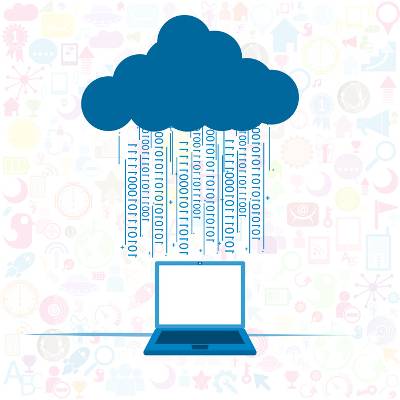 Is your business taking advantage of desktop virtualization? It's a great money-saving solution that allows you to host a desktop environment from your server so that it can be accessed remotely on a terminal or device via your network. Businesses wanting to control their data while enjoying the conveniences of the cloud will get the most from desktop virtualization.
Is your business taking advantage of desktop virtualization? It's a great money-saving solution that allows you to host a desktop environment from your server so that it can be accessed remotely on a terminal or device via your network. Businesses wanting to control their data while enjoying the conveniences of the cloud will get the most from desktop virtualization.
 "The Cloud" may mean very different things to different people, and has certainly been used in a number of ways that obscure its actual definition. The cloud a place to store and access files, run software, automatically back up files, virtualize data, and much more. Globally, smaller cities are becoming cloud cities using all of these capabilities to save money and improve their infrastructure and services.
"The Cloud" may mean very different things to different people, and has certainly been used in a number of ways that obscure its actual definition. The cloud a place to store and access files, run software, automatically back up files, virtualize data, and much more. Globally, smaller cities are becoming cloud cities using all of these capabilities to save money and improve their infrastructure and services.
 By now, the advantages of using a cloud-based solution to backup your company's data are well known. It's easy to use, scalable, and cost effective. However, not all cloud-based backup solutions are created equal. There's still a level of risk, albeit a small one, that comes with cloud computing. It's important that your cloud service is thoroughly explained to you.
By now, the advantages of using a cloud-based solution to backup your company's data are well known. It's easy to use, scalable, and cost effective. However, not all cloud-based backup solutions are created equal. There's still a level of risk, albeit a small one, that comes with cloud computing. It's important that your cloud service is thoroughly explained to you.
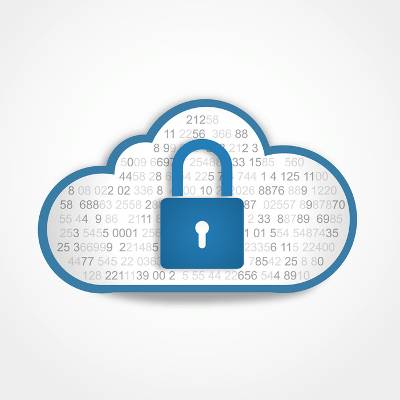 When considering network and computing infrastructure security for your business, you don't usually think about about alternative routes of delivery for these solutions; and especially don't consider that this technology is available without the traditional appliance. Now, comprehensive security solutions for your network, server, and end-user is available as a service, in the cloud.
When considering network and computing infrastructure security for your business, you don't usually think about about alternative routes of delivery for these solutions; and especially don't consider that this technology is available without the traditional appliance. Now, comprehensive security solutions for your network, server, and end-user is available as a service, in the cloud.
 One of the most attractive features of cloud computing is the ability to free you from your desk and go mobile. While there are many ways that going mobile can benefit your business, like making your staff more productive, there are also several personal benefits worth considering by doing your work on the go.
One of the most attractive features of cloud computing is the ability to free you from your desk and go mobile. While there are many ways that going mobile can benefit your business, like making your staff more productive, there are also several personal benefits worth considering by doing your work on the go.
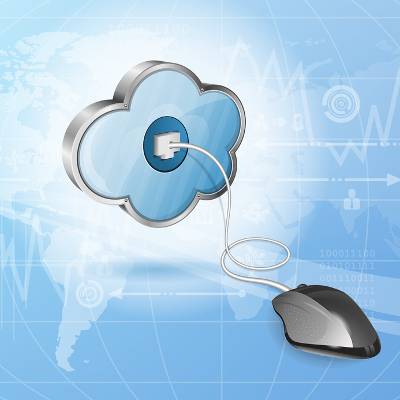 You hear a lot about "migrating to the cloud." Using Internet technologies, cloud computing gives users scalable IT solutions that are hosted offsite in data centers, which look nothing like clouds. Cloud computing is a hot trend that many companies are taking advantage of, but is the cloud right for your organization?
You hear a lot about "migrating to the cloud." Using Internet technologies, cloud computing gives users scalable IT solutions that are hosted offsite in data centers, which look nothing like clouds. Cloud computing is a hot trend that many companies are taking advantage of, but is the cloud right for your organization?



